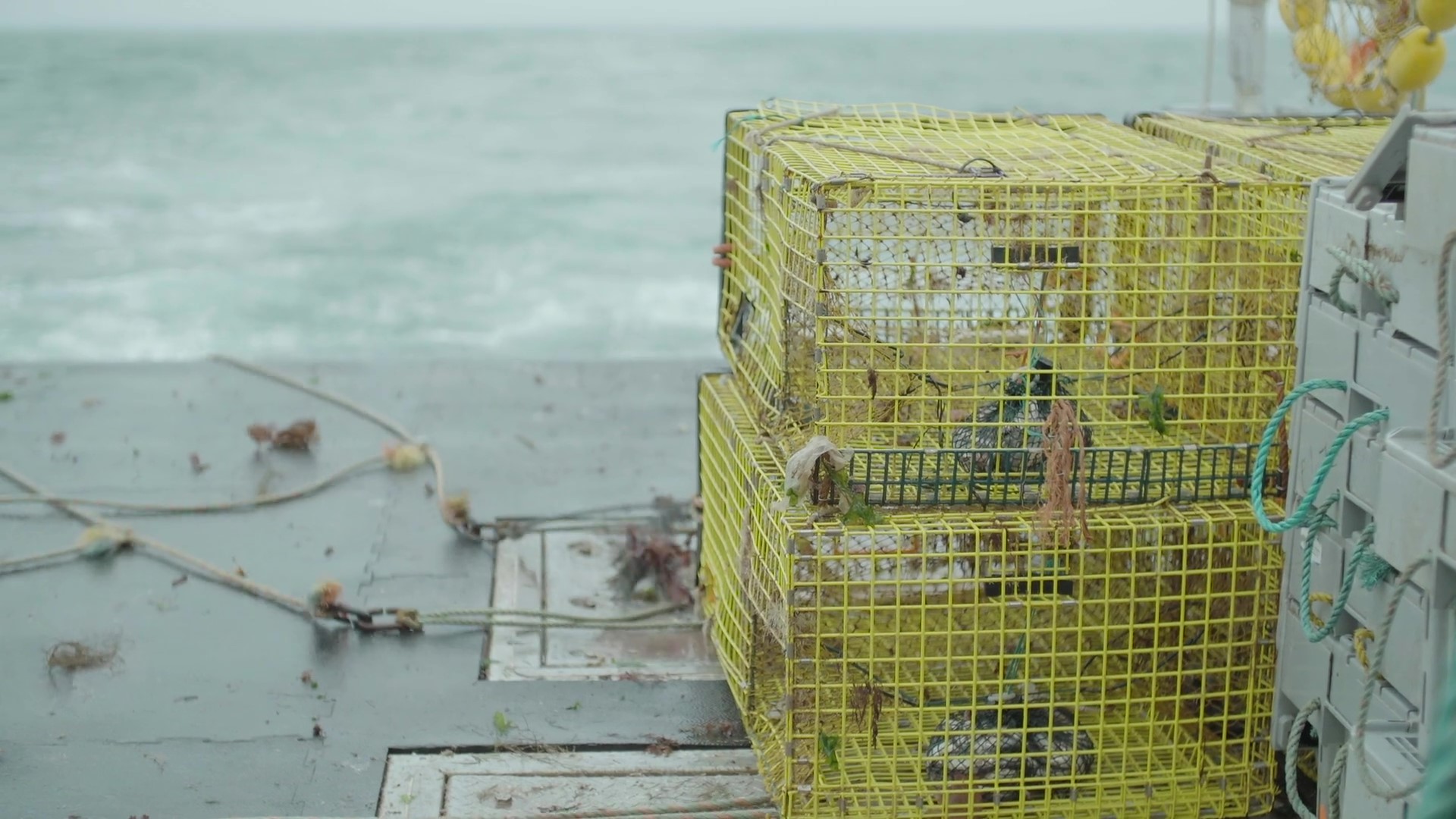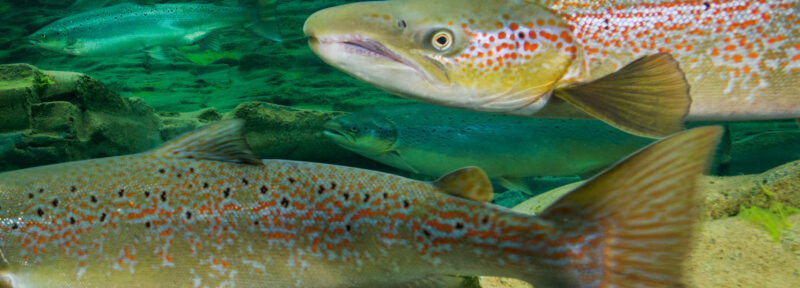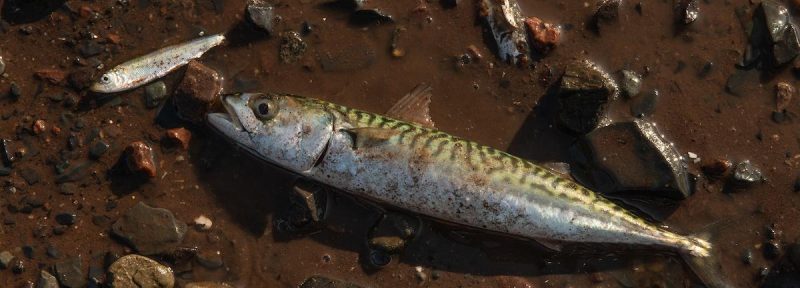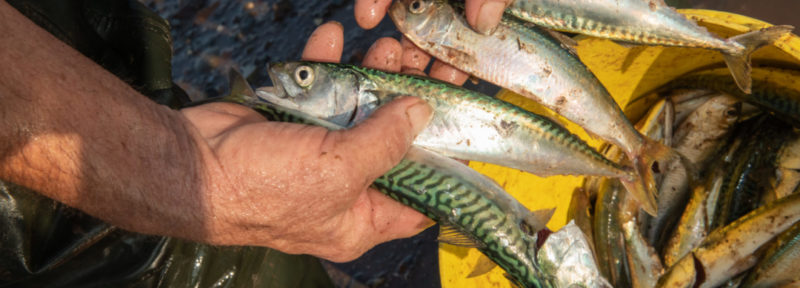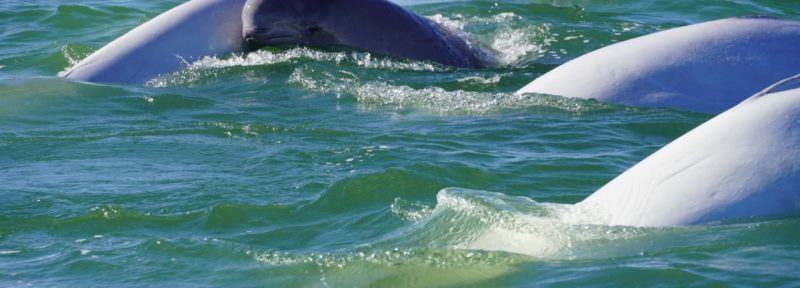How Innovation and Evidence-based Decision Making Can Help Atlantic Mackerel Recover
Lobster traps filled with bags of bait.
Crédit : Oceans North / Flow Video
Atlantic mackerel (Scomber scombrus) support both natural ecosystems and coastal livelihoods throughout Atlantic Canada and Quebec. Mackerel are prey for seabirds, sharks, whales, and commercially important species like cod and tuna. They currently support a $6.7 million commercial fishery, and they’re also a preferred source of bait for the region’s $1.5 billion lobster fishery.
But mackerel stocks are in trouble. The results of the most recent mackerel science assessment reveal that the spawning stock biomass (the estimate of stock abundance) is at the lowest level ever recorded. Atlantic mackerel have been critically depleted for a decade now; there are almost no fish over 5 years of age, and no notable recruitment events in recent years.
The stock has very little chance of increasing back to healthier levels under these conditions. But unlike many stocks in the critical zone, fishing mortality for mackerel is still extremely high—which means that reducing fishing offers a good chance of rebuilding the stock. There are a couple of solutions that could bring long-term economic benefits to the fishing industry and help Atlantic mackerel become abundant once again.
One thing we need to figure out is how to reduce the amount of mackerel going into the bait supply for the lobster fishery in Atlantic Canada. In 2019, 200 million pounds of lobster were caught in Atlantic Canada. Best estimates are that 1.9 pounds of fish as bait are needed for every pound of lobster caught—that’s 380 million pounds of fish a year.
More sustainable bait options are being developed by scientists, innovators and fishers themselves. Some alternatives have been shown to fish just as well as traditional bait while also reducing the volume of whole fish required. These need to be promoted and incentivized, especially as long as catches of mackerel need to be kept at minimal levels. Watch the video below that tells the story of one such initiative.
A decision on this year’s mackerel quota is due any day now. Fisheries and Oceans Canada (DFO) also needs to shut down the commercial mackerel fishery for a few years to offer the stock the best chance at recovery. While this will cause short-term pain, it’s the best opportunity to maximize future economic opportunities for fishermen. A recent cost-benefit analysis revealed that minimizing fishing now could lead to benefits estimated at over $54 million, with a 12.9 per cent return on the “investment” of rebuilding the stock to healthier levels.
Atlantic mackerel are a linchpin of the marine ecosystem and coastal economies, and the value of a healthy Atlantic mackerel population needs to be recognized if they are to have any chance of returning to their former abundance. DFO must close the commercial fishery for mackerel for a few years, which will maximize the economic benefits of rebuilding, while also incentivizing solutions for sustainable bait.

